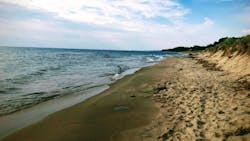Mich. announces $1.1M for coastal management grants
Feb. 11, 2022
Sponsored Recommendations
Sponsored Recommendations
ArmorBlock 5000: Boost Automation Efficiency
April 25, 2024
State of Smart Manufacturing Report Series
April 25, 2024



